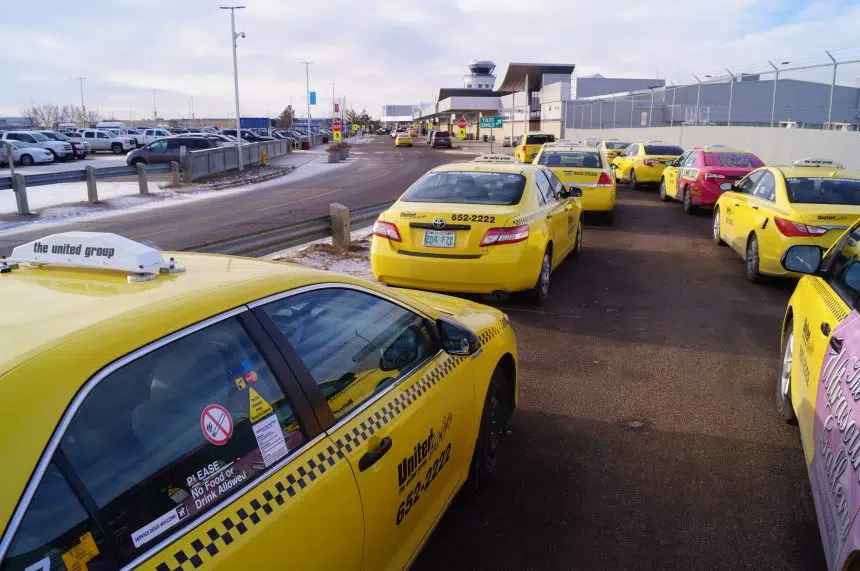When ride-sharing companies like Uber and Lyft make their way into Saskatoon, they won’t be required to have in-car cameras and the number of drivers they put out won’t be limited.
But they will be required to have company logo decals on their vehicles and will have to provide accessibility options on their app for the disabled.
Saskatoon city council voted 6-3 in favour Monday of having a temporary bylaw drafted for ride-sharing services, which will see the industry governed by different rules than taxis until a “comprehensive” vehicle-for-hire bylaw can be brought to council in early 2019.
Councillors Mairin Loewen, Darren Hill, Hilary Gough, Troy Davies, Randy Donauer and Ann Iwanchuk supported the temporary bylaw. Councillors Zach Jeffries, Cynthia Block and Bev Dubois voted against, while Sarina Gersher was excused due to a conflict of interest.
Mayor Charlie Clark was absent from the meeting, attending a mayoral leadership summit in New York City.
Among the different rules:
- Ride-share vehicles won’t require an in-car camera, while taxis do.
- Only taxis will be able to stay at taxi stands and pick up street hailers.
- Individual ride-share drivers won’t be required to get a business licence — taxi drivers must do so.
- The number of ride-share drivers will be unlimited, unlike taxi plates.
- Peak time surge pricing will be allowed for ride-sharing, not for taxis.
Councillors added in requirements for a decal on the vehicles to enhance security, and to have accessibility options integrated into ride-sharing apps to ensure those with disabilities can securely order and pay for a ride.
Taxi industry representatives and current drivers tried to convince council not to implement the different set of rules, on the grounds they create an “unlevel playing field” for cabs.
They argued ride-sharing companies in Saskatoon ought to operate under the same stringent security rules as taxis.
“I don’t see why Lyft and Uber can’t follow the current bylaws,” said Kelly Frie, co-owner of Comfort Cabs.
He suggested it would be “patently unfair” to allow an unlimited number of ride-share drivers into the city, while still capping taxi plates at 1989 levels.
However, council did vote unanimously in favour of further exploring a taxi industry-proposed “flex fleet” plan, which would provide additional plates to be used by taxis in peak hours — such as after a Rush game or big concert at SaskTel Centre.
Frie said the option would be a “demand-based solution” to eliminate long waits for service during busy periods.
Council also approved the distribution of “seasonal licences” to Comfort Cab and United to enhance the number of vehicles on the road between Sept. 1 and Feb. 28, 2019.
Despite voting in favour of the recommendations, Ward 3 coun. Ann Iwanchuk expressed concern about the piecemeal approach to developing rules for ride-sharing and taxis.
She said she would have preferred to allow city administration to develop one comprehensive bylaw incorporating rules for both industries.
“If it’s January or February that a bylaw is passed, it’s not going to be the end of the world,” she said.
“The world will still go on … but we’ll get it right. Because otherwise we’re going to be coming back every two or three months to debate this. Let’s just get it done right once and move forward.”
The temporary ride-sharing bylaw will come back to council to be finalized after the province solidifies its own rules for the industry.
Other reports on a flex fleet for taxis will be presented in September and October.











